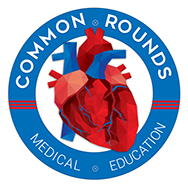
Author: Hamed Shahnam
I thought I’ll take the opportunity to reflect on second year of medical school. Year two has been a challenging but extremely fulfilling and exciting year. It has been the year where at ANU we have managed to learn an enormous amount of medicine whilst at the same time managing and completing a comprehensive research project which we began working on in first year.
The challenge of second year not only stemmed from juggling the time pressures associated with research commitments but also to keep pace with the extensive body of knowledge that was taught to us. These subjects I believe are some of the most challenging aspects of medicine. We learnt about gastroenterology, hematology, oncology and infectious disease. We finished the year off by covering musculoskeletal system, rheumatology and neurology. As you can see second year of medicine at ANU introduces medical students to a massive body of knowledge and a good chunk of internal medicine, pathology, microbiology and infectious disease. Not only that we have learnt many diagnostic and clinical skills to complement our academic knowledge!
The most difficult aspect about year 2 for me has been keeping on top of the content taught, learning and practicing clinical skills and whenever there was a spare moment working on our research project. Throughout the year I prioritized learning the medical contents first, then learning clinical skills and having binge session of research project work. I worked extremely hard over our summer break to ensure that the bulk of the research data was collected over this period. I then spent a large amount of time once or twice a month working on the data analysis and project write-up. I then spent most of the university break completing the write up of the project. Keeping up to date with lectures really assisted me in that regard by freeing up my university holidays for research work.
The lectures in year two are very content heavy. They often aim to cover many topics in a short one hour session. A notion that became evident early in year two was the need for extra reading and using the lectures as guides. I personally find that understanding a topic helps remember the subject area for a longer period of time and sometimes the lectures do not provide the depth required for me to understand a topic. Consequently, I encourage everyone to rethink the notion of lectures as the only source of information and highlight the importance of reading for better comprehension of topics. An extensive list of resources for subject specific areas is provided on our website but here are my quick picks:
- Gastroenterology: BRS Costanzo (physiology), Robbin’s (pathology) and Toronto Notes (clinical aspects)
- Haematology: Essential Haemoatology, Pathoma (pathology), Robbin’s (pathology) and Toronto Notes (clinical aspects)
- Oncology: Pathoma (pathology), Robbin’s (pathology) and Toronto Notes (clinical aspects)
- Neurology and MSK: Neuroanatomy Through Clinical Cases, Robbin’s and Pathoma (pathology) and Toronto Notes (clinical aspects)
- Worthy mentions: Kumar and Clarke, Harrison’s, USMLE First Aide Step One and Kaplan
